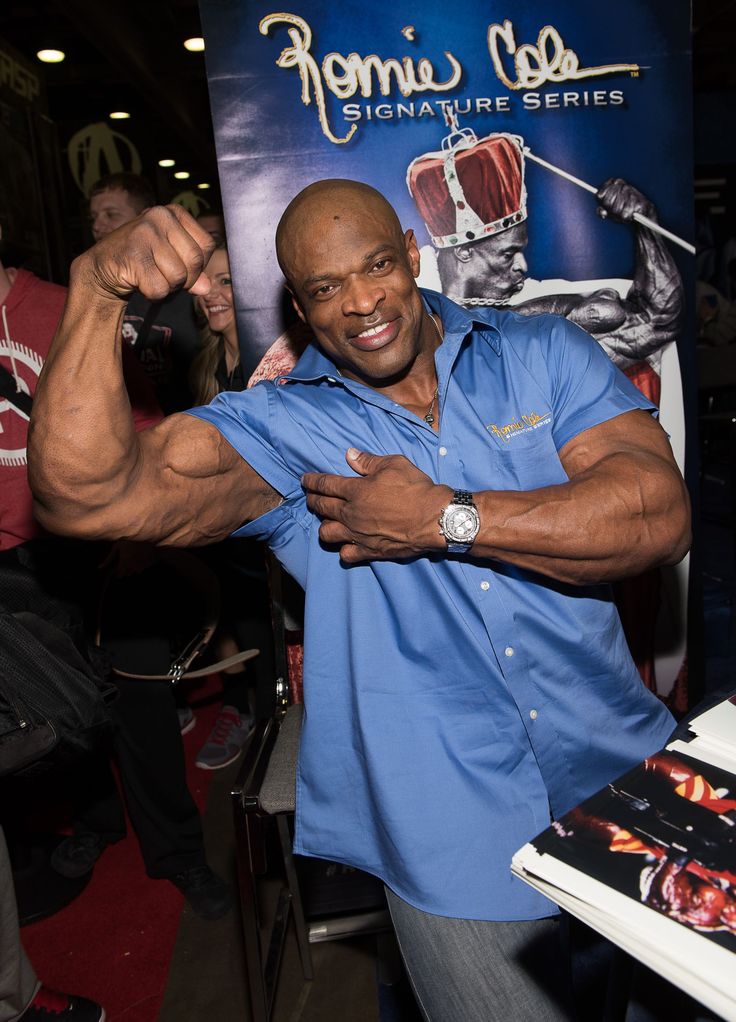“Ronnie Coleman: The King of Bodybuilding’s Unbreakable Legacy”
Ronnie Coleman, considered one of the greatest bodybuilders in history, earned the nickname “The King” through his unprecedented dominance in professional bodybuilding. His legacy is defined not only by his record-equalling eight Mr. Olympia titles, but also by his extraordinary work ethic, larger-than-life personality, and perseverance in the face of severe physical challenges.
This introduction traces Coleman’s journey from humble beginnings to global icon, his revolutionary impact on bodybuilding, the physical burdens of his career, and the enduring inspiration he provides to athletes around the world.
Early Life and Unlikely Beginnings
Ronnie Dean Coleman was born on May 13, 1964, in Monroe, Louisiana, to a family that taught the values of hard work and perseverance. Raised in a modest home, Coleman excelled in sports, particularly football, during his time at Bastob High School. His athletic skills earned him a scholarship to Grambling State University, where he played as a middle linebacker under legendary coach Eddie Robinson and graduated in 1984 with a bachelor’s degree in accounting.
Despite his academic success, Coleman struggled to find work in his field and moved to Arlington, Texas, where he joined the police force in 1989. It was here, by a coincidence, that his bodybuilding journey began. A fellow officer introduced him to the Metro flex gym, where owner Brian Donon offered Coleman a free membership to compete in the 1990 Mr. Texas contest. This unexpected moment launched a career that redefined bodybuilding.
Rise to Bodybuilding Stardom
Coleman’s entry into bodybuilding was not an instant success story. His early competitions, including a third-place finish at the 1990 NPC Championships, highlighted his potential but also his need for refinement. In 1991, he won the World Amateur Championships in Poland, earning his IFBB pro card and setting the stage for his professional career. His breakthrough came with a win at the Canadian Pro Cup in 1995, followed by consecutive victories, including the 1997 Russian Grand Prix.
By 1998, Coleman won his first Mr. Olympia title, beginning an eight-year reign from 1998 to 2005, and equaling Lee Haney’s record for most consecutive wins. His physique, characterized by unmatched size, symmetry, and conditioning, set a new standard. At his peak, Coleman weighed 287–305 pounds, with iconic poses such as the double biceps behind his back demonstrating a level of muscle that peers such as Kevin Levrone described as “partly human, part gorilla.” His ability to combine mass with definition made him a standout figure in the golden age of bodybuilding.
Training Philosophy and Iconic Catchphrases
Coleman’s training was renowned for its intensity and volume, often involving extreme weights that exceeded human limits. He was known for lifts such as 800-pound squats and deadlifts, which were famously captured in training videos with his catchphrases “Yeah Buddy!” and “Lightweight Baby!” These phrases became cultural staples, reflecting his relentless mindset. His philosophy emphasized progressive overload, full range of motion, and strict form, aligning with modern hypertrophy principles, though some of his max lifts were criticized for prioritizing “swag” over optimal muscle development.
Coleman’s work ethic, developed through years of balancing police work with training, inspired countless lifters. His sessions at the Metro flex gym, often under grueling conditions, highlighted his dedication. He trained six days a week, targeting specific muscle groups with high-repetition sets and ate a diet of 5,562–6,000 calories per day, including 546 grams of protein, to fuel his body.
The Physical Toll and Resilience
The excessive weight Coleman lifted took a toll on his body. Since 2007, he has undergone more than a dozen surgeries, including a double hip replacement and multiple spinal procedures that cost millions and left him relying on a wheelchair to get around.
Despite being told he might never walk again, Coleman’s response—“But lightweight baby”—showed his unwavering spirit. His 2018 Netflix documentary, Ronnie Coleman: The King, charted both his rise and his health struggles, revealing the sacrifices behind his success. Notably, Coleman expressed no regrets, saying he would have put in even more effort, such as attempting to do four reps instead of two on his 800-pound squat
Share this content:




Post Comment